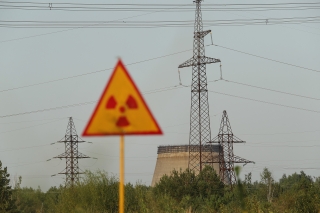Baltic States – CIS, Energy, Legislation, Lithuania, Russia
International Internet Magazine. Baltic States news & analytics
Saturday, 27.04.2024, 04:04
Lithuania sends note to IAEA over radioactive leak in Russia
 Print version
Print version |
|---|
"We have drafted and sent a note to IAEA over the incident, calling
for scrutiny of all circumstances and ensure (compliance to) the 1986
Convention on Early Notification of a Nuclear Accident," Energy Minister Zygimantas Vaiciunas told BNS.
Vaiciunas said he asked earlier this week for the European Commission's
(EC) support on the matter.
"I was clearly assured that immediate steps would be taken shortly to
establish the IAEA procedures to ensure everything in IAEA. The European
Commission would double-check. I believe we will have the results
shortly," said the energy minister.
During one of Europe's biggest wind energy conferences in Amsterdam on
Tuesday, Vaiciunas met with EC Deputy President for Energy Gerassimos Thomas.
"I expressed my huge astonishment over the process that occurred – the
leak of ruthenium (ruthenium-106 isotope). The fact occurred in late September
and was only established two months later. There are certain instruments and
international conventions for this. I raised the question about why the
instruments don't work and stated my clear position that we cannot trust the
development of nuclear energy in Belarus, regardless of its technological
credibility," said the energy minister.
Russia's meteorological service confirmed at the end of November that the
extremely high concentration of ruthenium-106 had been recorded in the
country's few regions close to the station in Argayash village in the
Chelyabinsk region in southern Ural, exceeding the usual level by a factor of
986.
The figures were established close to the nuclear company Majak.
Russia disclosed the information only after France's radiation safety and
nuclear safety institute (IRSN) announced on Nov. 9 that the samples of air
taken on Sept. 27 through Oct. 13 contained the radioactive isotope,
ruthenium-106.
Ruthenium-106 forms in a nuclear reactor during atom splitting, it does not
exist naturally. It is also used in medical equipment used for radiation
therapy.
Lithuania's officials say the incident heightens Lithuania's fears over the
Astravyets nuclear power plant under construction in Belarus by Russia's Rosatom concern.








 «The Baltic Course» Is Sold and Stays in Business!
«The Baltic Course» Is Sold and Stays in Business!

